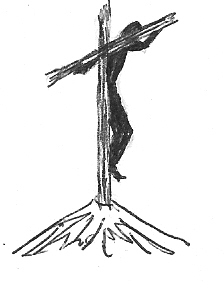
When you pray, to whom do you pray?
I am not talking about the theological description of God here, but the personal one. When I write a letter or an email to someone, I hold in my mind an image of the person to whom I am writing. That image may include things like an image of their face, a memory of the way they laugh, an emotional attitude towards them. This personal image is often far more important in guiding what I write than any purely rational facts or knowledge about the person, such as their age or address.
So in the same way, while our dogmatic knowledge about who God is, His nature and characteristics, is important in so many ways, but when it comes to actually talking to Him, it is often thrust into the background. Rather, it is our personal, individual, idiosyncratic image of Him that most determines the quality of our prayer life (I think something similar may also be said of how we read the Bible, but I won’t go into that now).
So when you pray, what is the image of God you hold in your mind? Who is the One you talk to? What emotional ‘colours’ does He appear to you with, and what is His personality like? Continue reading “Who Do You Pray To?”







 Today, an entry from a book in preparation: the Textbook of Spiritual Diseases. The introduction to the book includes the following warning:
Today, an entry from a book in preparation: the Textbook of Spiritual Diseases. The introduction to the book includes the following warning: